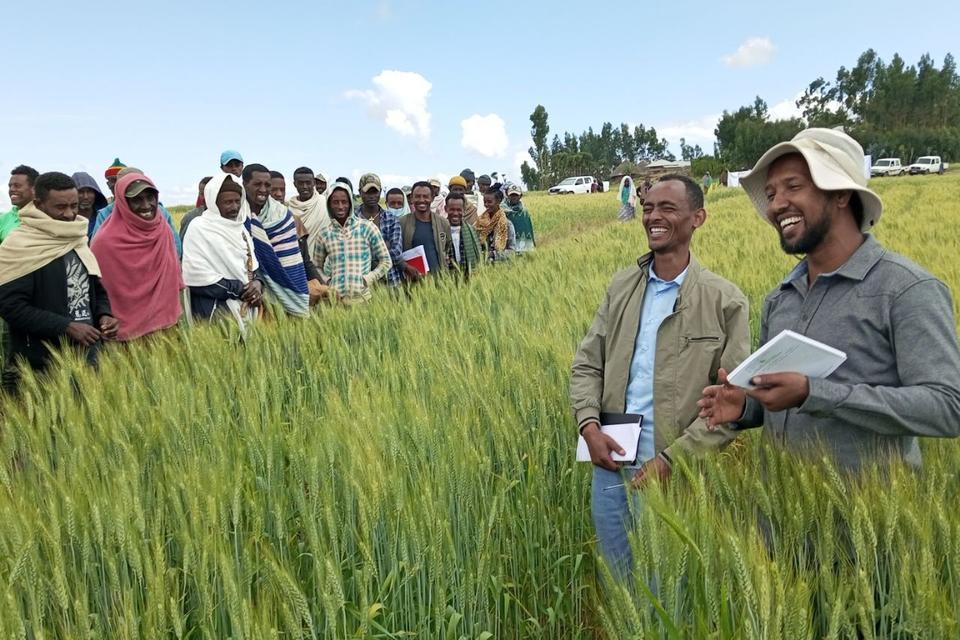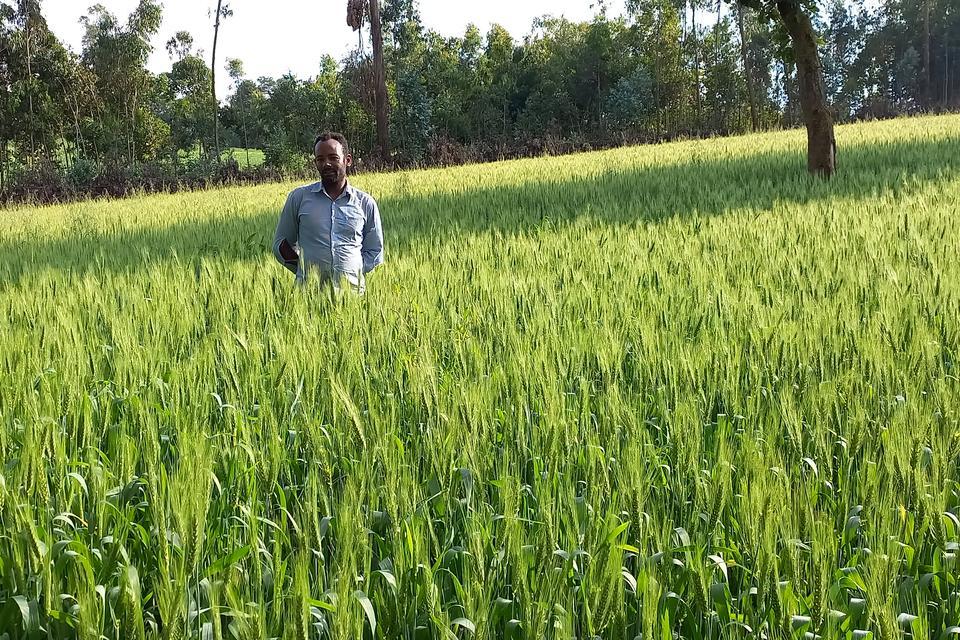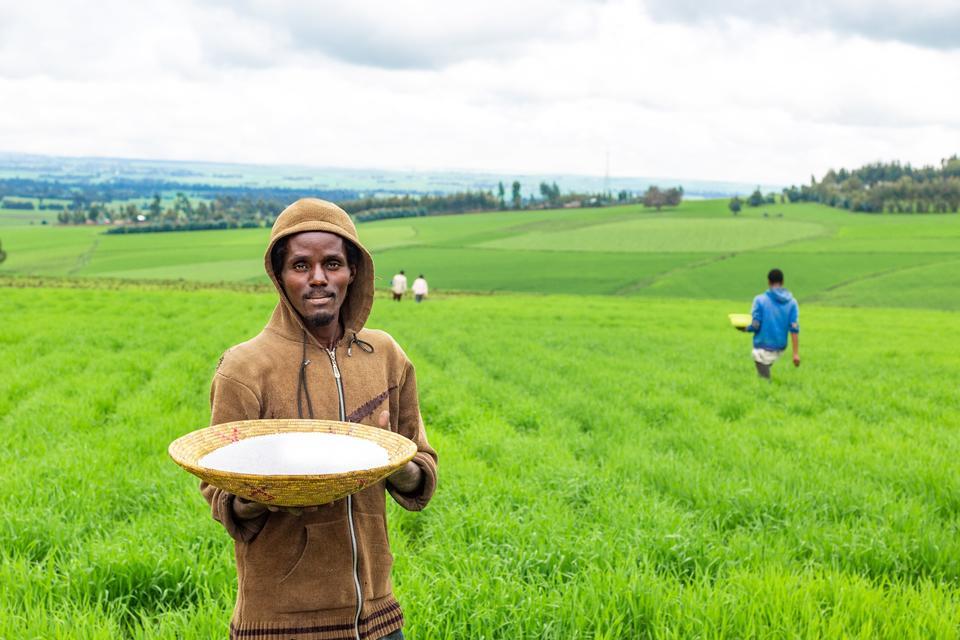From the Field Cultivating science-based solutions at scale: The pledge of the Ethiopian Extension Service on fostering the transition from blanket to tailored fertilizer recommendations for smallholder farmers
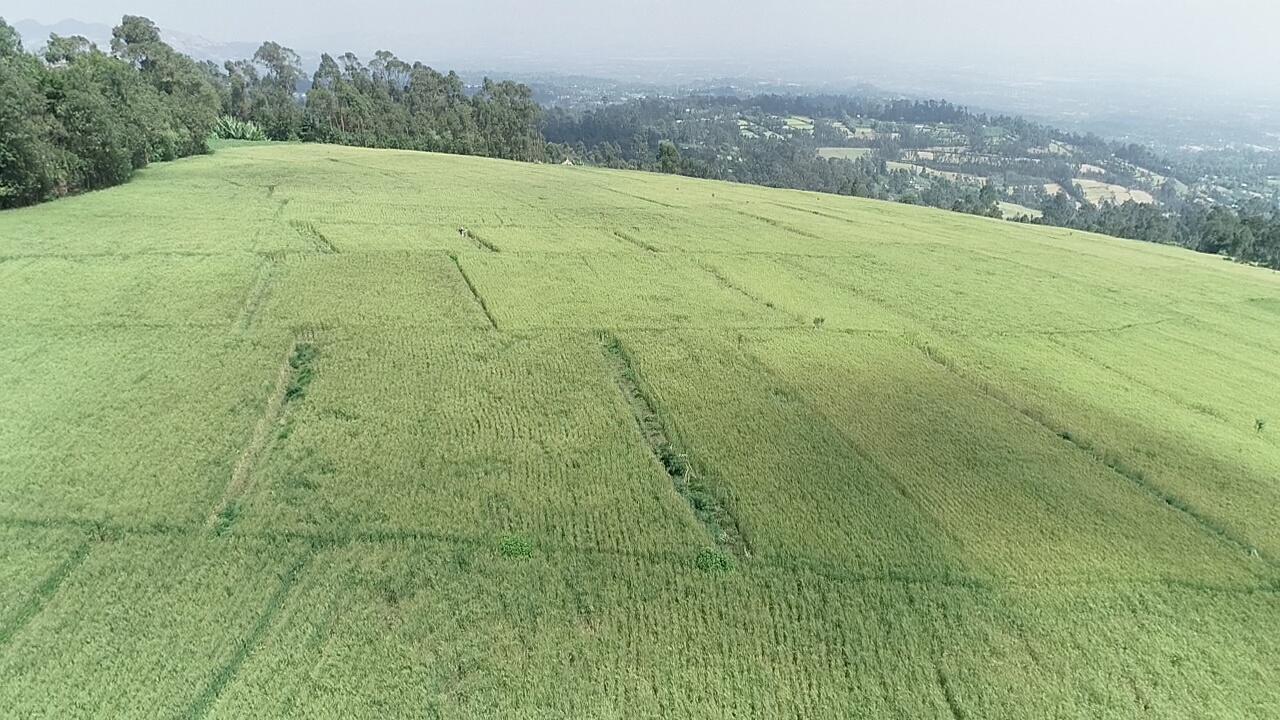
To enhance wheat production and productivity, the Ethiopian Extension Service, with the support of the Alliance of Bioversity International and CIAT and Deutsche Gesellschaft für Internationale Zusammenarbeit (GIZ), piloted location-specific fertilizer (LSFRs) recommendations aligning with Agricultural Commercialization Cluster (ACC) in Doyogena District's Gomora Kebele during the 2023 main cropping season. This initiative aims to address the challenges of blanket fertilizer recommendations, which often lead to suboptimal use and hinder consistent growth.
By: Mohammed Ebrahim1, Fikadu Tessema2, Woldegebriel Jimore3, Lulseged Tamene1, Wuletawu Abera1, Feyera Merga1, Amsalu Tilaye1, Tewodros Abebe1, Debbebe Tolosa4, Teklu Erkossa4
1 Alliance of Bioversity International and CIAT, Ethiopia
2 International Livestock Research Institute (ILRI), Ethiopia
3 Digital Green, Ethiopia
4 Deutsche Gesellschaft für Internationale Zusammenarbeit (GIZ)
A Paradigm Shift from Blanket to Location-Specific Fertilizer Recommendations
To augment agricultural production and disseminate innovative technologies and improved practices, the Ethiopian government has established an extensive government extension system extending from the federal to the grassroots level (kebeles). Within each kebele, development agents are strategically deployed to the Natural Resources Management (NRM), Livestock, and Crop sectors. A particular emphasis is placed on the crop sector due to its direct bearing on the country's food security.
Utilizing improved inputs such as fertilizers, high-yielding varieties, chemicals, and efficient land preparation tools is crucial for enhancing crop productivity. However, the widespread promotion of fertilizers without considering soil nutrient requirements and agro-ecological conditions has led to suboptimal use. In some areas, fertilizer is applied are below the recommended rates, while in others, applying beyond the recommended rates. Coupled with other poor agronomic practices, these disparities in fertilizer use have hindered consistent growth in production and productivity, leaving many farmers struggling to achieve food security.
Recognizing these challenges, the Alliance of Bioversity International and CIAT, under Excellence in Agronomy (EiA) initiative has been actively working against blanket fertilizer recommendations to enhance food crop productivity, focusing on wheat. The Alliance has engaged extension personnel at various levels, from validation to piloting and scaling. District agricultural offices have been actively participating in the validation process of location-specific fertilizer recommendations, from site and farmer selection to evaluation and organizing field days and visits to promote the advisory services further. Organizing a field day and visit for the Ministry of Agriculture (MoA) crop and extension directorate in 2022 effectively elicited attention and support for further piloting of location-specific fertilizer recommendations (LSFRs).
This proactive engagement of extension personnel at various levels has instilled their confidence and trust in the practical application of LSFRs.
In the 2023 main cropping season, the Ministry of Agriculture (MoA) took the initiative to pilot location-specific fertilizer recommendations (LSFRs) at Doyogena district by aligning with the Agricultural Commercialization Cluster (ACC) through Farmers, Research, and Extension (FRE) linkage facilitation. ACC production has emerged as a promising strategy for enhancing wheat production and productivity in Ethiopia. Aligning FRE and ACCs fosters collaboration and knowledge sharing among farmers, researchers, and other stakeholders, concentrates resources and expertise in the district, and promotes the adoption of LSFR and other improved technologies and practices.
Through the facilitation of the GIZ, Alliance and MoA a location-specific fertilizer recommendation (LSFR) wheat cluster was piloted in Doyogena District, Gomora Kebele, bringing together 185 farmers and forming a cluster of 35 hectares of land. The district office of agriculture played a pivotal role in establishing the ACC and applying the LSFRs. The office identified sites, delineated the cluster, collected each farmer's field GPS points, and shared these points with the Alliance to generate the LSFR for each farmer's plot.
The combined implementation of LSFR and ACC, along with improved wheat varieties, enhanced agronomic practices, effective disease and weed management strategies, and strengthened FRE linkage, has substantially increased wheat field performance. Surpassing expectations, LSFR has significantly outperformed previous wheat yields recorded on the LSFR wheat plot and neighboring farmers' fields, with farmers witnessing a remarkable 30% increase in wheat yield. To further replicate and expand these interactive approaches and the synergistic model, Alliance, in partnership with the Doyogena District Office of Agriculture, organized a farmer field day.
Alliance of Bioversity and CIAT, in collaboration with the districts’ offices of Agriculture, organized farmers' field days on November 6 and 15, 2023, in Kembata Zone's Doyogena District and Hadiya Zone's Lemo District to evaluate the suitability and impact of location-specific fertilizer recommendation (LSFR) on wheat productivity.
The main aim of the field days was:
- To educate farmers about the benefits of LSFR that is tailored to the specific needs of a particular field. This includes evaluating the performance of the LSFR wheat field compared to the neighboring farmers’ fields.
- To enable farmers, agricultural experts, and extension workers to observe and learn from practitioners on the successful practices and experiences related to LSFR and wheat clustering in the two pilot sites.
- To discuss and facilitate the transfer of knowledge and experience sharing from the pilot sites and promote the adoption and implementation of the practice in neighboring kebeles, districts, and zones of the Central Ethiopia Region.
Farmers and Experts Unite for Location-Specific Fertilizer Success
A total of 140 farmers (120 men and 20 women), 56 extension workers, and 7 participants from the media and other sectors participated in the two-site field day. During the field day, experts and farmers were asked to evaluate the performance of the wheat with the LSFR recommendation using color cards: green for excellent performance, yellow for good performance, and red for poor performance. Accordingly, around 92.5% of the farmers and 88% of the extension experts showed green cards to indicate their level of satisfaction with the wheat's performance on the LSFR plot compared with the conventional farmers' practices or the blanket recommendation plots.
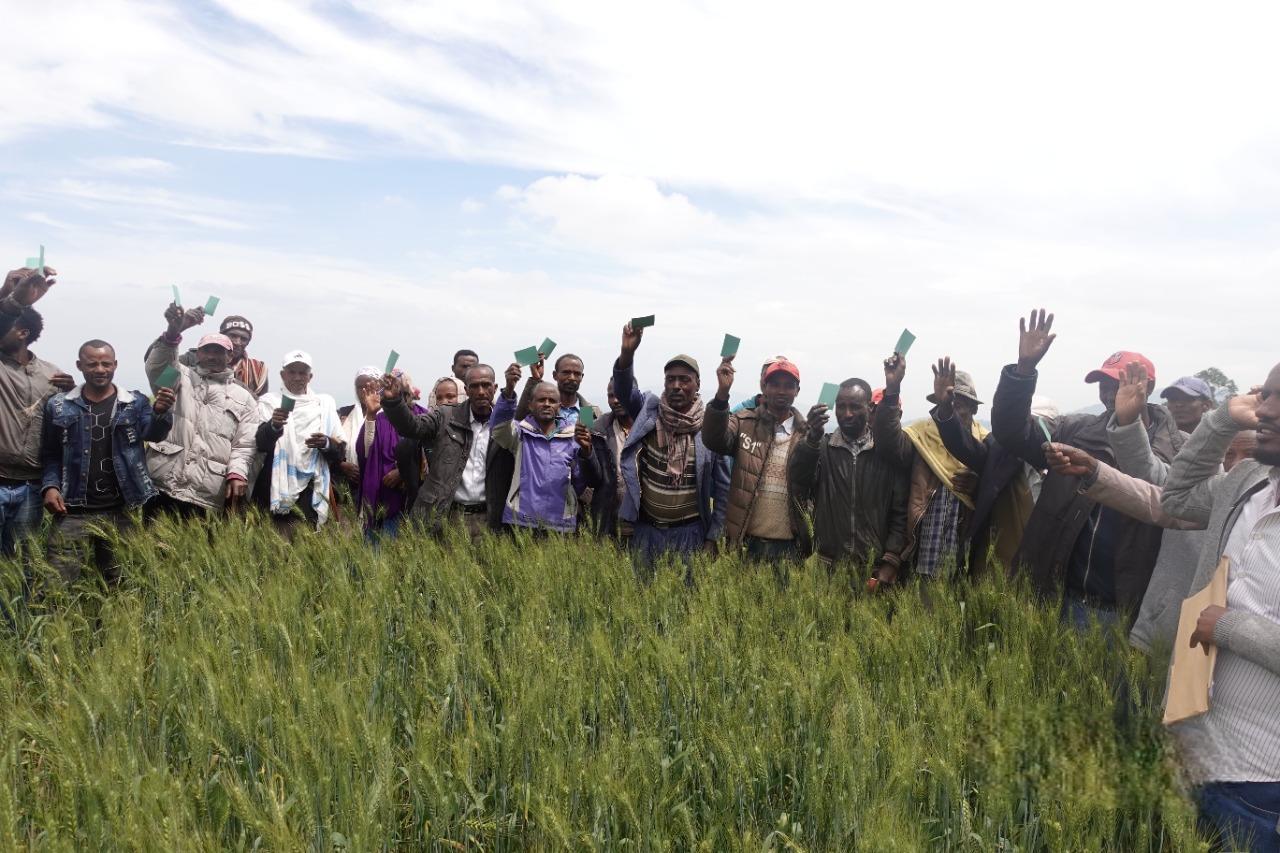
Photo 2. Farmers are evaluating the performance of the LSFR wheat field at Doyogena district, GomoraKebele.
The farmers' and experts’ feedback or testimonies on location-specific fertilizer application on wheat clustered presented as follows:
Testimonials and Commitments from Agricultural Stakeholders about LSFR
Mr. Wondowoson Dejene (from the Ministry of Agriculture) emphasized that this pilot activity is crucial for creating policy guidance at the national level. Despite the fertilizer shortage, farmers have managed to implement good agricultural practices and achieve positive outcomes within the wheat cluster. Their commitment and dedication to the practice are commendable.

Photo 3. Mr. Wondowoson Dejene (from the Ministry of Agriculture) explained the role of Location- Specific Fertilizer Recommendations and ACC in enhancing wheat productivity.
Recognizing the limitations of blanket recommendations, Mr. Mulegeta Temesgen Kamabat, Zone Agriculture Department Head, emphasized that "different areas may exhibit variations in soil types, climate, pest and disease pressures, and farming systems. Therefore, providing customized fertilizer application guidance tailored to farmers' specific needs and circumstances is crucial for optimizing agricultural productivity and sustainability. This approach acknowledges the significance of local expertise, active engagement, and collaboration between Agricultural professionals and farmers to address the specific needs and challenges in the zone and region.
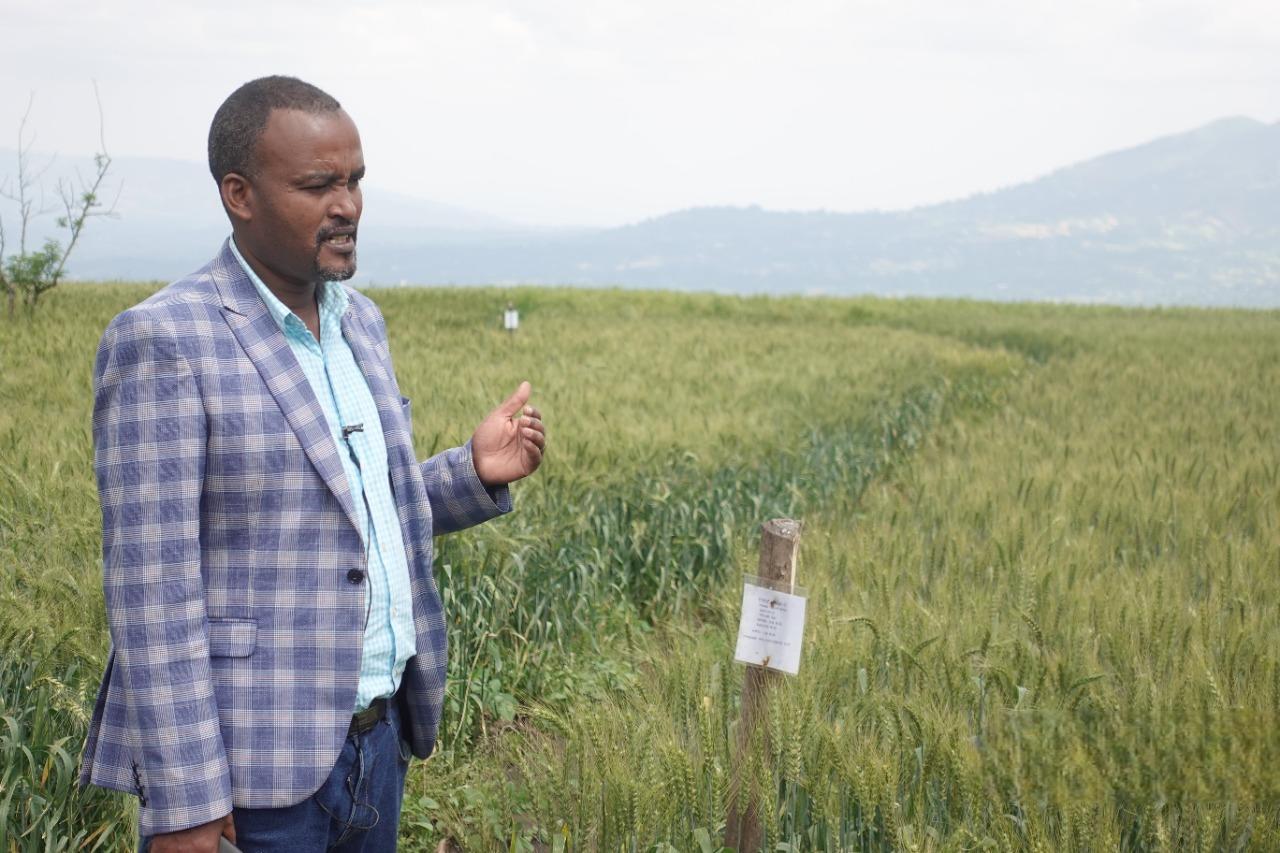
Photo 4. Mr. Mulegeta Temesgen (Kembata Zone Agriculture Department Head) explained the location-specific fertiliser Recommendation for optimizing wheat productivity and sustainability.
Voices of Change:
The testimonials from agricultural stakeholders paint a vivid picture of the transformative power of LSFR. Mr. Wondowoson Dejene from the Ministry of Agriculture highlighted the national significance of this pilot activity. Zone Agriculture Department Head, Mr. Mulegeta Temesgen Kamabat, emphasized the need for customized guidance to address diverse local conditions.
A Farmer's Perspective: Mrs. Tigistu Ayele, a farmer from Lemi Kebele, shared her journey of witnessing significant improvements in wheat fields with LSFR. Increased plant density, height, spike size, and length are just a few of the positive changes she observed, instilling confidence in the higher yield potential of LSFR.
Commitment and Future Promise: Mr. Abare Hogego, a visiting farmer, expressed immense satisfaction and pledged to implement LSFR practices on his farm. The commitment to share experiences with fellow farmers signals a promising future for widespread adoption.
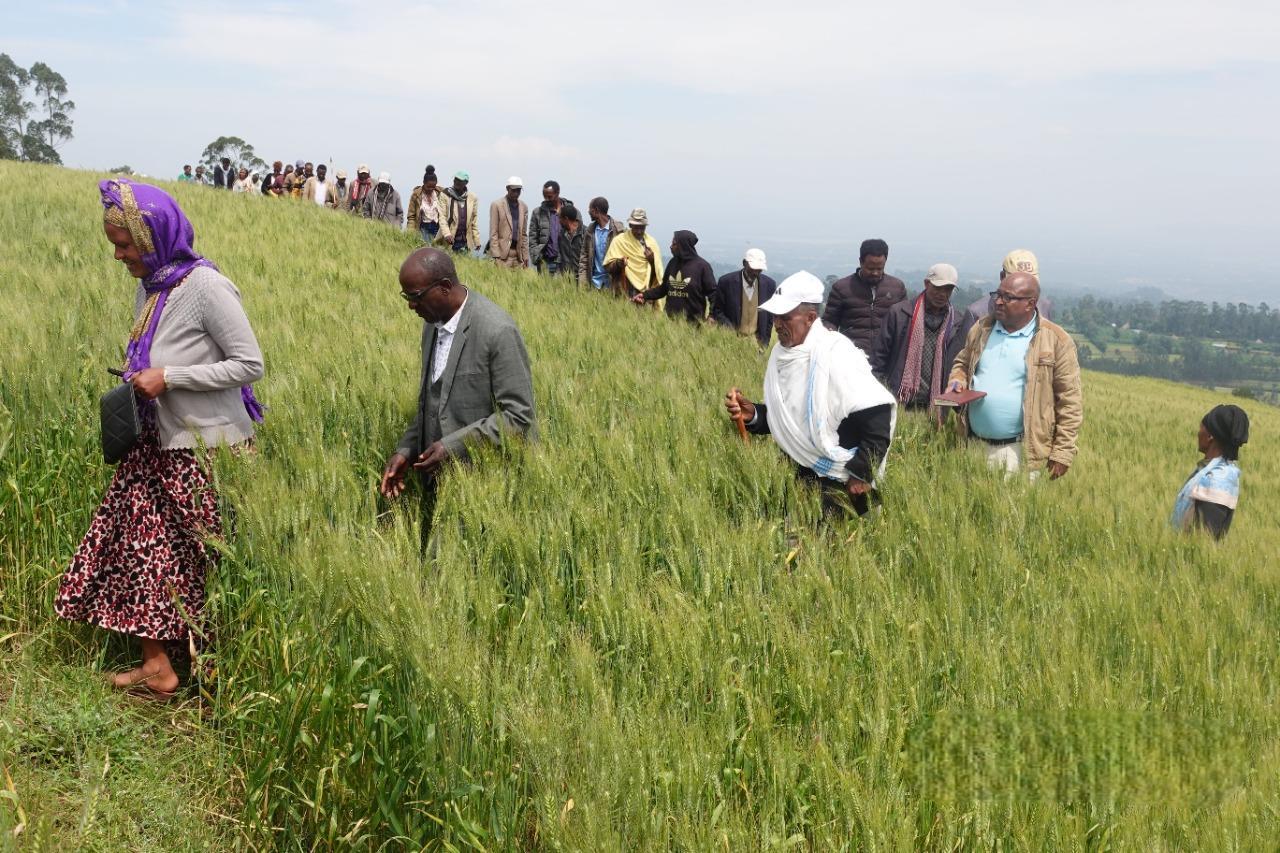
Photo 5: Field Day participants visited the wheat cluster on Location-Specific Fertilizer Recommendation plot at Doyogena District, Gomora kebele
The significance of the LSFR, which is tailored to the specific needs of a particular field, was advocated during a field day at Doyogena (Gomora kebele) and Lemo district (Shurmu kebele) aimed at enhancing wheat productivity. This event was broadcast, broadcasted on the on Kenbata and Hadiya zonal televisions.
Conclusion: Embracing a Greener Tomorrow
In conclusion, the Ethiopian Extension Service, supported by the Alliance of Bioversity International and CIAT and GIZ, is leading the charge towards a more sustainable and productive agricultural future. The commitment of agricultural authorities to scale LSFR reflects a dedication to adopting scientific approaches that cater to the unique needs of smallholder farmers. As we celebrate this success, the journey towards a greener tomorrow continues, one field at a time.
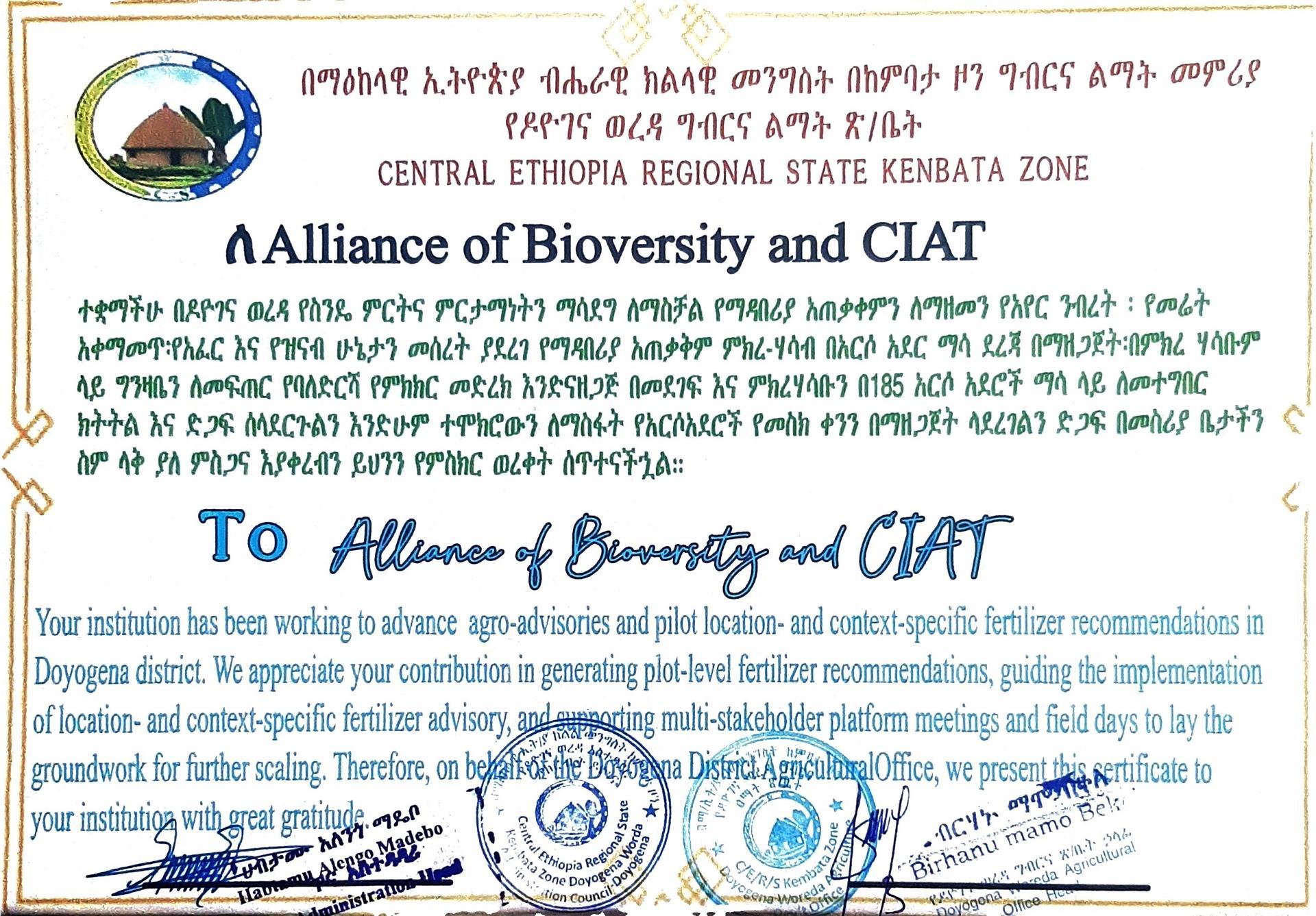
Photo 6: Letter of recognition from Doyogena district, Kenbata zone - November 2023
Acknowledgement
We acknowledge the technical and financial support of the Accelerating Impacts of CGIAR Climate Research for Africa (AICCRA) in implementing this activity. We also acknowledge the technical contribution of the Sustainable Intensification of Mixed Farming Systems (SI MFS) initiative.
See Also
